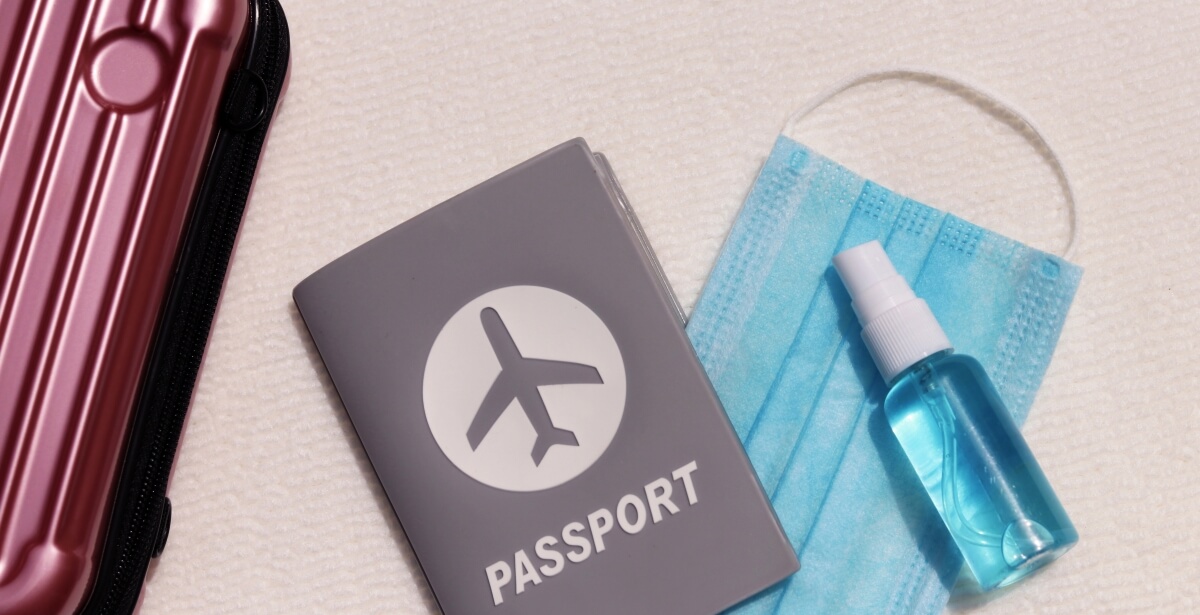Is Travel Nursing Worth It? Your Top Questions Answered

Have you ever considered whether you should become a travel nurse? There are both pros and cons of travel nursing, but the pathway can be rewarding for those who pursue this exciting opportunity. In this blog, we will explore the life of a travel nurse and the path you can take if you choose to engage in this type of nursing practice.
Travel Nursing in the United States
The history of travel nursing is believed to have origins dating back to the 1970s in New Orleans during Mardi Gras week. Clinical facilities found themselves with an increased patient census and extra help with nursing care was needed. Contracted positions were a temporary solution that could be introduced to increase the number of nurses available to assist. Travel nurses are able to relocate on a regular basis to fill in when there are not enough nurses to adequately care for the patients and families they serve.
By the 1980s, national nursing shortages became problematic for facilities across the country that faced growing demand for staffing. As internal resources were stretched thin, hospitals and clinical agencies started to look externally for reinforcement to the care team. Shortages continued into the 1990s and travel nursing continued to expand.
Today, travel nursing has become very popular and this is expected to continue. Let’s explore some of the trends in nursing that exist now and are likely to remain in the future.
Anticipated Trends in Travel Nursing
In 2022 and beyond, the demand for nurses continues to rise in the United States. There is a greater focus on hiring nurses with higher education levels and other trends in nursing are anticipated, such as:
- 5.7 million more nurses will be needed globally by the year 2030
- There will be about a 9% increase in the number of available RN nursing jobs by 2030
- Nurses will be able to access more job opportunities if they are trained in two or more specialty areas
- 43% of new nurses will be from the Americas to fill the demand in every region
It’s amazing how many nurses are needed and how important nurses are to the success of health care in the United States. Wise management of the available nurse resources is critical to ensure the needs of our communities are met and disparities can continue to be addressed.
Nursing Resources and the COVID Landscape
The pandemic has challenged hospitals and other health care facilities with the task of managing resources more effectively than ever. Nurses are one such resource and the COVID landscape has continued to highlight the importance of nurses as essential to the ongoing operation of patient care facilities.
Travel nursing jobs are popular career choices for current nurses and prospective nurses because of the flexibility in location, variety in the specialty areas, and fulfillment that comes from making a difference where there genuinely are staffing needs. Because there are both long-term and shorter-term contracts available, there is potential to maintain consistency in workplace location or to move around more frequently, depending on your preference.
Although the pay can vary greatly depending on the details of each contract, the average travel nurse's salary is approximately 25% higher than that of a non-traveling nurse. The average weekly pay for a travel nurse can equal roughly $2,327 in the United States. From a monetary perspective, travel nursing has benefits, but there are other factors to consider when deciding whether travel nursing is worth pursuing.

Is Travel Nursing Worth It?
You might be wondering how the life of a travel nurse is similar and different from the life of a non-travel nurse. Both jobs employ nursing skills and many of the day-to-day activities are the same for travel and non-travel nurses. Still, both pros and cons must be weighed to determine if a commitment to travel nursing is worth it for you.
Here are the answers to common questions many people have about travel nursing.
Question #1: What are the top benefits of travel nursing?
Answer: Aside from the enjoyment of travel and the potential for an increased salary, travel nurses may avoid some bureaucracy associated with traditional employment arrangements. This is because contractual agreements allow travel nurses to be employed by outside agencies while they supplement the staffing in facilities where there is a community need. The ability to enter a workplace, assist with needs, and leave after a short-term commitment may be an attractive characteristic of travel nursing.
The opportunity to work in a variety of nursing assignments can also allow travel nurses to build their resumes in a relatively short period of time while they make new friends and gain experience. There are many different specialty areas that travel nurses are employed in, and nurses can really broaden their skill sets when they are expected to adapt to new specialty areas in a relatively short period of time. Some nurses enjoy this kind of variety and change.
Question #2: What are the downsides of travel nursing?
Answer: Because travel nurses are on contractual assignments, there may be times of loneliness and feelings of being excluded from the main team of nurses. Travel alone can become a burden with increased costs and the potential to feel less job stability than you might feel with traditional employment. There are vehicle expenses to consider as well as housing and the cost of meals. Still, some find the variety of work environments and geographical locations to be exciting rather than a downside.
Question #3: How do you choose the best travel nursing assignments?
Answer: Some travel nurses use their personal desire to visit a given location as the guiding factor in how they select their nursing assignments. The life of a travel nurse is centered on being aware when new contract opportunities arise. It is important to be plugged into a travel nursing marketplace or agencies in which the purpose is to concisely advertise and connect travel nursing opportunities with available employment candidates. This type of network is helpful for travel nurses to review and compare each potential assignment, especially with the shifting supply of nurses during the pandemic.
Question #4: How does someone become a travel nurse?
Answer: Certifications in basic and advanced cardiac life support, as well as hands-on nursing experience, are helpful in landing a travel nursing job. RNs can pursue education to broaden their understanding of health care conditions and nursing practice along with factors that influence how the health care system works as a whole. Nurses who want to advance their education may be more marketable for a position in travel nursing.
Question #5: What are some of the biggest misconceptions about travel nursing?
Answer: One of the biggest myths about travel nursing is that the lifestyle is not conducive to also having a family. As more jobs become remote positions, families are sometimes able to travel together or maintain connections through the use of technology. It is a misconception that travel nursing automatically lends itself to disconnection and isolation from others.
Nurses can be proactive when scheduling and negotiating the terms of travel nursing arrangements so that the life of a travel nurse can be family-friendly. The ability to set healthy work-life boundaries while maintaining open communication with employers can go a long way in establishing a satisfying travel nursing career.
Question #6: What personality characteristics describe a travel nurse?
Answer: Travel nurses tend to be organized, independent and competent. They may be more task-oriented than other nurses because their work assignments are often temporary and designed to fill in for the needs of a unit until more permanent staff are hired. The ability to quickly shift from one practice environment to another with limited onboarding makes flexibility and adaptability essential for the travel nurse.
Question #7: What are the challenges of travel nursing in the health care system?
Answer: The use of travel nurses to fulfill ongoing nursing shortages has increased, especially during the COVID pandemic. What began as a temporary solution may not have an end when travel nursing fulfills an ongoing need. As a result, some hospitals and clinical agencies now rely heavily on travel nurses to supplement staff despite the increased cost of labor. The sustainability of these expenditures is not always known, even when strategic planning is at the forefront of health care decision-making.
Question #8: Do health care staff view travel nurses in a positive light?
Answer: While there are a variety of opinions on the pros and cons of travel nursing, there are also social considerations and perceptions of travel nursing among health care employees in general. Travel nurses are sometimes viewed with envy, particularly when there are judgments about how much money a travel nurse may make compared with permanent staff and the fairness of the variations in contract terms.
Now that we have considered these questions about travel nursing, you can decide whether travel nursing is right for you. Let’s discuss the process someone might take to make this career path a reality.

How to Become a Travel Nurse
If traveling through various geographical locations is a lifestyle that interests you, travel nursing may be a great fit. For those who hold a bachelor’s degree but have no nursing experience, Elmhurst University offers both an Online Accelerated BSN and an Online Direct Entry MSN in nursing to become a nurse.
Upon completion of either of these accelerated nursing entry programs, you’ll be prepared to sit for the NCLEX-RN exam to become a licensed RN, a qualification you will need to become a travel nurse.
If you believe a second career in nursing is right for you, visit the Elmhurst University accelerated nursing program page, and begin your journey by requesting a comprehensive digital program guide.

